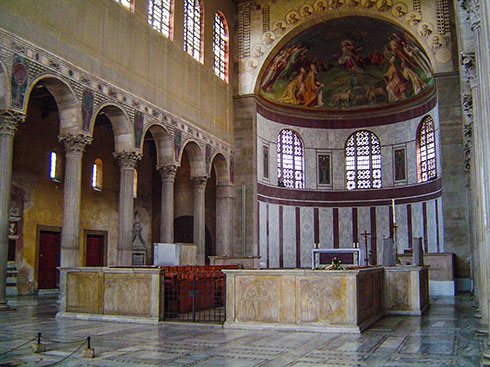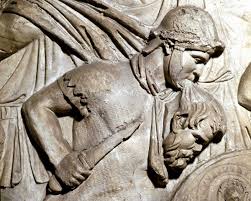Stamp: Winged Altar (Liechtenstein 2014)
Winged Altar (Liechtenstein 2014)
10 March (Liechtenstein ) within release Winged Altar goes into circulation Stamp Winged Altar face value 2 Swiss frank
| Stamp Winged Altar in catalogues | |
|---|---|
| Michel: | Mi:LI 1709 |
| Zumstein: | Zum:LI 1660 |
Stamp is square format.
Also in the issue Winged Altar:
- Stamp - Winged Altar face value 1;
- Stamp - Winged Altar face value 2;
- Stamp - Winged Altar face value 6;
- Souvenir Sheet - Winged Altar face value 9;
Stamp Winged Altar it reflects the thematic directions:
Religion is any cultural system of designated behaviors and practices, world views, texts, sanctified places, ethics, or organizations, that relate humanity to the supernatural or transcendental. Religions relate humanity to what anthropologist Clifford Geertz has referred to as a cosmic "order of existence". Different religions may or may not contain various elements ranging from the "divine", "sacred things", "faith", a "supernatural being or supernatural beings" or "some sort of ultimacy and transcendence that will provide norms and power for the rest of life". Religious practices may include rituals, sermons, commemoration or veneration (of deities), sacrifices, festivals, feasts, trances, initiations, funerary services, matrimonial services, meditation, prayer, music, art, dance, public service, or other aspects of human culture. Religions have sacred histories and narratives, which may be preserved in sacred scriptures, and symbols and holy places, that aim mostly to give a meaning to life. Religions may contain symbolic stories, which are sometimes said by followers to be true, that have the side purpose of explaining the origin of life, the Universe and other things. Traditionally, faith, in addition to reason, has been considered a source of religious beliefs. There are an estimated 10,000 distinct religions worldwide. About 84% of the world's population is affiliated with one of the five largest religions, namely Christianity, Islam, Hinduism, Buddhism or forms of folk religion.
Art is a diverse range of human activities in creating visual, auditory or performing artifacts (artworks), expressing the author's imaginative or technical skill, intended to be appreciated for their beauty or emotional power. In their most general form these activities include the production of works of art, the criticism of art, the study of the history of art, and the aesthetic dissemination of art. The oldest documented forms of art are visual arts, which include creation of images or objects in fields including painting, sculpture, printmaking, photography, and other visual media. Architecture is often included as one of the visual arts; however, like the decorative arts, or advertising, it involves the creation of objects where the practical considerations of use are essential—in a way that they usually are not in a painting, for example. Music, theatre, film, dance, and other performing arts, as well as literature and other media such as interactive media, are included in a broader definition of art or the arts. Until the 17th century, art referred to any skill or mastery and was not differentiated from crafts or sciences. In modern usage after the 17th century, where aesthetic considerations are paramount, the fine arts are separated and distinguished from acquired skills in general, such as the decorative or applied arts.
An altar is a table or platform for the presentation of religious offerings, for sacrifices, or for other ritualistic purposes. Altars are found at shrines, temples, churches, and other places of worship. They are used particularly in paganism, Christianity, Buddhism, Hinduism, Judaism, modern paganism, and in certain Islamic communities around Caucasia and Asia Minor. Many historical-medieval faiths also made use of them, including the Roman, Greek, and Norse religions.
The Goths (Gothic: 𐌲𐌿𐍄𐌸𐌹𐌿𐌳𐌰, romanized: Gutþiuda; Latin: Gothi, Greek: Γότθοι, translit. Gótthoi) were Germanic people who played a major role in the fall of the Western Roman Empire and the emergence of medieval Europe




